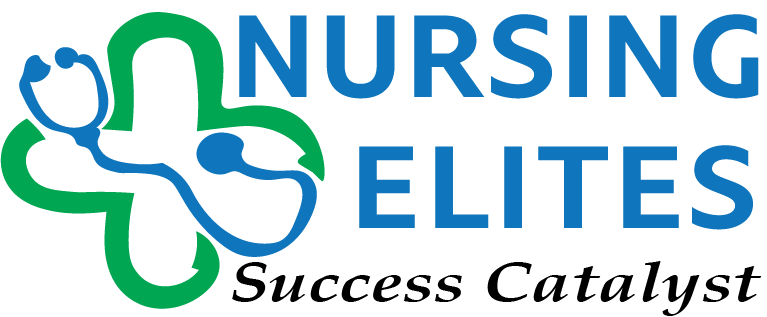Nursing concepts are vital in guiding nursing practice, regardless of the care level or the nursing specialty. Many other concepts have evolved since Florence Nightingale introduced the first nursing concept that a nurse must use their brain, heart, and hands to care for the patient’s body, mind, and spirit. These fundamental nursing concepts form the foundation of modern nursing practice. In this guide, our nursing experts will explain the nursing concepts. They also help students with nursing classes and assignments.
Fundamental Nursing Concepts
The fundamental nursing concepts are the cornerstone of nursing practice, providing the foundational principles that guide the profession. These concepts provide the framework for understanding and guiding nursing practice, education, and ethics. The four fundamental nursing concepts are:
Person
In nursing, the “person” refers to the individual receiving care, typically the patient. It recognizes that each person is unique and holistic, encompassing physical, psychological, social, and spiritual dimensions. Nurses focus on addressing the needs and promoting the person’s well-being in their care.
Environment
The environment in nursing encompasses both the physical and psychosocial surroundings in which care is provided. It includes the healthcare setting, the quality of the surroundings, and the interactions between individuals within that environment. Nurses strive to create a healing and supportive environment that promotes the well-being and comfort of the patient.
Health
Health is defined in nursing as a state of well-being that allows individuals to perform essential activities independently. This definition goes beyond the absence of illness and includes aspects like normal physiological functioning and well-being and the ability to engage in activities of daily living. Nurses play a central role in helping individuals achieve and maintain their peak state of health.
Nursing
Nursing is a science and an art dedicated to delivering care to individuals to enhance their health and overall well-being. It encompasses various roles and responsibilities, from assessing and diagnosing health conditions to implementing care plans and advocating for patients. Nursing requires knowledge, compassion, and clinical skills to support patients’ physical, emotional, and social needs.
These fundamental nursing concepts serve as a philosophical foundation for the profession and guide nurses in their interactions with patients, their approach to care, and their ethical considerations. They emphasize the importance of holistic and patient-centered care, recognizing that individuals are not merely a collection of symptoms but unique beings with diverse needs and experiences.
The nursing process
The nursing process is a critical component of nursing practice, serving as the systematic framework that guides care delivery. It consists of a series of steps, each of which plays a significant role in providing patient-centered and evidence-based care. The nursing process typically includes the following stages:
- Assessment: In this initial phase, nurses collect comprehensive data about the patient’s health status, including physical, psychological, social, and spiritual dimensions. This step involves conducting interviews, performing physical examinations, reviewing medical records, and seeking input from the patient and their family. Thorough assessment lays the groundwork for identifying healthcare needs and formulating an individualized care plan.
- Diagnosis: The nursing diagnosis involves interpreting the data collected during the assessment phase to identify health problems, potential risks, and areas where the patient requires assistance. Nursing diagnoses are distinct from medical diagnoses and focus on the patient’s response to their health condition. These diagnoses guide the development of the care plan and the establishment of nursing interventions.
- Outcomes Identification: In this crucial step, nurses collaborate with the patient and the healthcare team to set clear and achievable goals and outcomes that reflect the desired results of nursing interventions. These outcomes are specific, measurable, patient-centered, and time-bound. Outcomes identification ensures that care is individualized and that progress can be assessed effectively.
Nursing Concepts: Planning and Implementation
- Planning: Nurses work with the patient and their healthcare team to establish a care plan based on the nursing diagnosis and outcomes identification. This plan outlines the goals, outcomes, and interventions to address the identified health issues. Planning considers the patient’s preferences, values, and available resources to create a patient-centered approach to care.
- Implementation: This phase involves carrying out the interventions outlined in the care plan. Nurses provide hands-on care, administer medications, educate patients, and collaborate with other healthcare professionals to meet the established goals. Implementation is an active and dynamic phase, requiring constant evaluation and adaptation of the care plan based on the patient’s response and changing needs.
- Evaluation: The last stage in the nursing process involves continually assessing the patient’s advancement and the interventions’ efficiency. Nurses evaluate whether the established goals and outcomes have been met, and if not, they revise the care plan as needed. Evaluation ensures patients receive high-quality, individualized care that promotes their well-being.
The nursing process is integral to nursing practice and underscores the importance of a systematic and patient-centered approach. It ensures that care is evidence-based, responsive to the patient’s unique needs, and continuously evaluated and refined for the best possible outcomes. This structured framework aligns with the fundamental nursing concepts of person, environment, health, and nursing, providing the foundation for delivering quality care across various healthcare settings and specialties.
Discover More to Nursing Concepts
The above are five fundamental nursing concepts that prospective students should aspire to master. Looking for help with nursing assignments? Our Nursing expert writers are well-versed in nursing concepts and can help you excel in your studies. Whether you need assistance with essays, research papers, or assignments, we support your academic journey from entry essays to the final year project.





Pingback: Pure Chemistry: What Students Need to Know